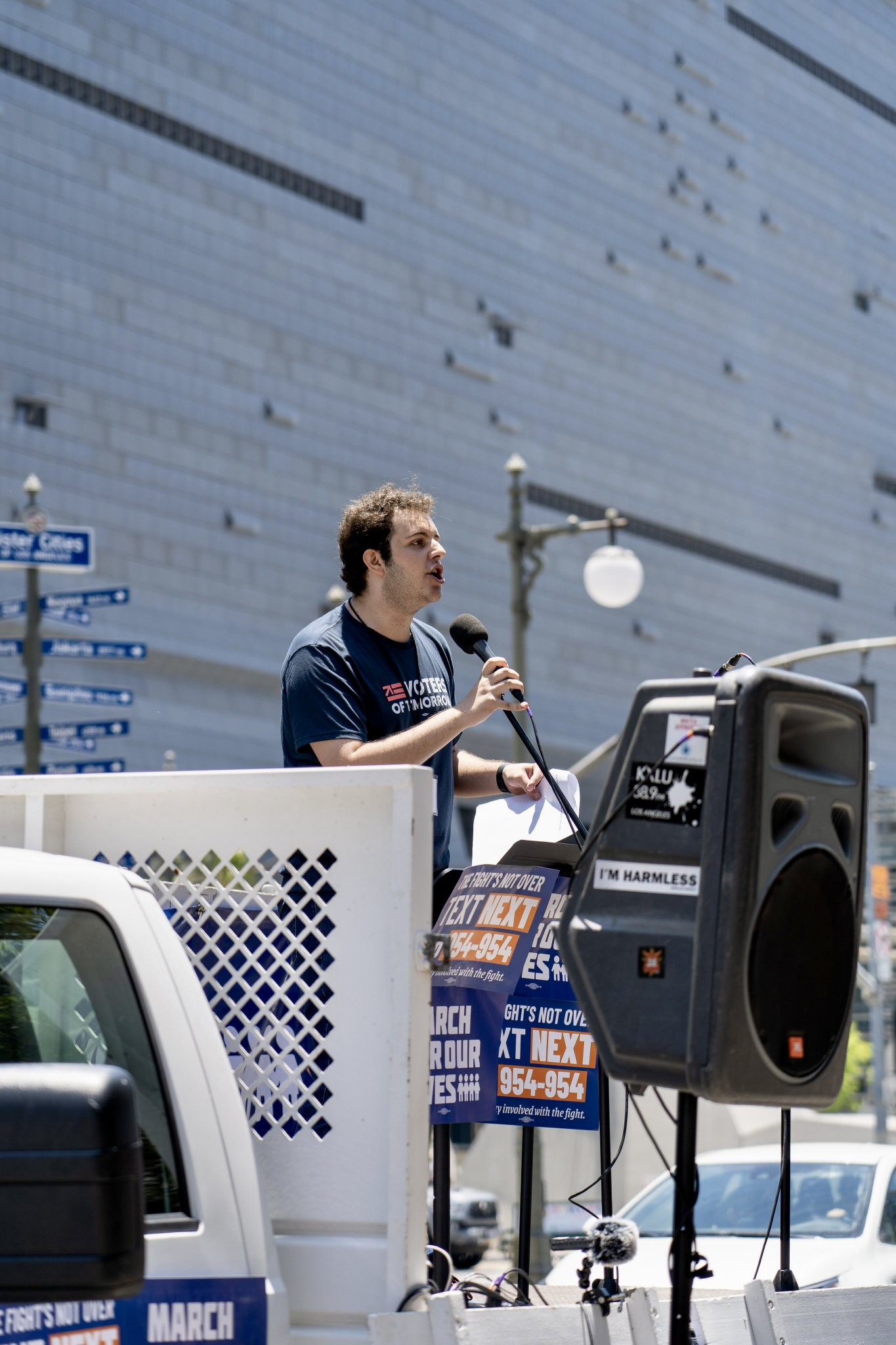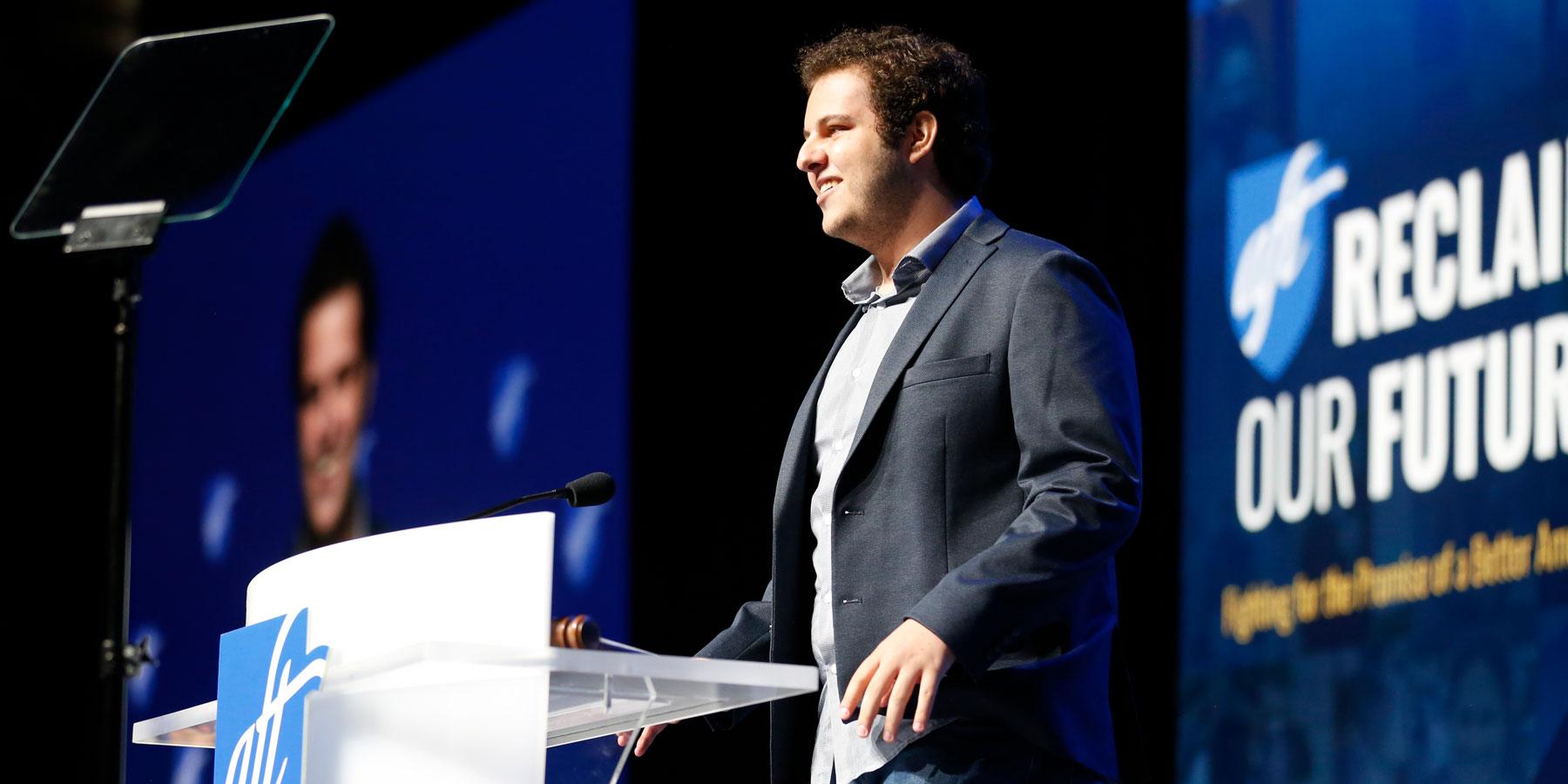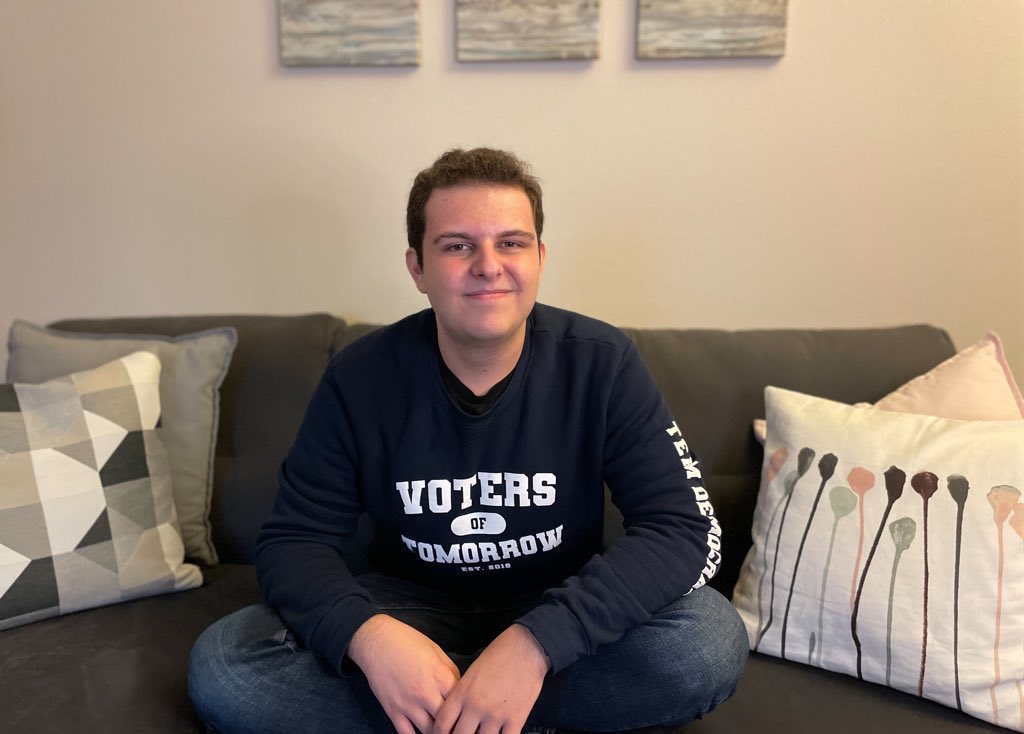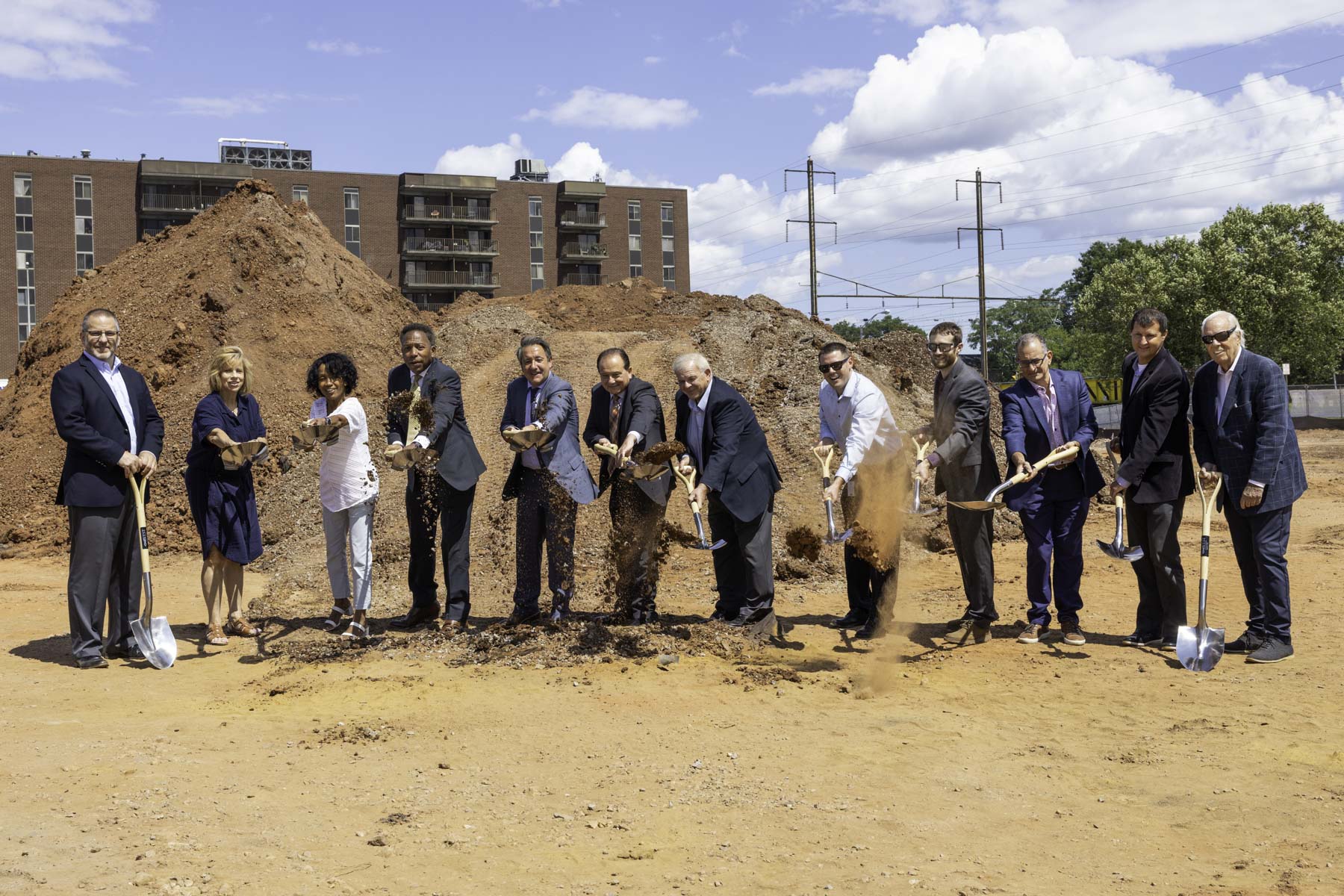(LOS ANGELES) – At just 21, Santiago Mayer has known for many years that youth engagement was his calling. As we sat down for our interview over zoom, Mayer’s energy and enthusiasm shone through the screen. With his tousled dark hair, a wide grin, and an expressive face, Mayer’s passion for political activism was evident from the moment we began to talk.
Now with the 2022 U.S. midterms in his rearview mirror, Mayer has the time to take a breath and take stock of the last few years. His journey began in 2017 when he immigrated to the United States from Mexico. His voice carried a tone of determination as he recalled the challenges he had to face moving to a new country.
“I was very passionate about Model United Nations and global politics,” Mayer told me with a wide grin as he considered why he got into political activism.
His move coincided with the controversial Muslim ban by the Trump administration. President Trump signed an executive order that suspended entry into the United States for citizens of seven Muslim-majority countries. It also suspended the United States’ refugee program for 120 days and indefinitely suspended the admission of Syrian refugees.
It wasn’t until he recognized that his political musings on Twitter were gaining traction that he realized the true power of his voice. “I started tweeting about it [the Muslim Ban] because I had to get out my comments somehow,” he said, his tone animated as he recounted how he managed to build quite the following.
Mayer immediately recognized how these moves significantly impacted the world. And, as I listened to Mayer, I could see the fire in his eyes when he spoke about how the turning points in his life acted as a catalyst for his own political activism. He began speaking in his high school classes about the Muslim Ban and to pretty much anyone who would listen to him.
What really galvanized him, though, was a fear of gun violence. In particular, the 2018 mass shooting at the Marjory Stoneman Douglas High School in Parkland, Fla., set a fire under him and spurred him to get into activist work. He cited the Parkland survivors speaking out on issues of gun violence as an inspiration as he helped lead walkouts in his own high school in Southern California.
“It really has traumatized our generation,” he said. “I’ve lost count of the number of times that someone drops a piece of wood or a balloon pops, and everyone in my class will jump and be scared because we’ve all been preconditioned to believe that at any moment we could be next.”
He’s driven by a desire to make sure that his generation is the last generation that deals with this pervasive and lingering fear of gun violence. Through discussions with his friends, he realized that there needed to be more public understanding of the significance of what they were living through. “I noticed that many young people either didn’t know what was happening or just didn’t really have the tools to talk about it,” he added, his brow furrowing with concern.
This tapped into his passion for empowering the youth and laid the foundations for what came next.
In 2019, at age 17, while still in high school, Mayer created an organization aimed at getting young people involved and politically engaged called Voters of Tomorrow. “Young people are going to be the people who deal with all the decisions being made today for the longest amount of time,” he told me with an infectious passion.
Mayer outlines the three critical goals at the heart of the work of the Voters of Tomorrow: to educate young people, engage them, and ensure that young people are politically represented.

Mayer speaking at a rally for gun control. (Photo credit: Santiago Mayer)
As a prominent figure in the world of Gen Z activism, Mayer’s journey exemplifies a broader pattern of young people taking a stand and demanding change. A study by Edelman, a global public relations and marketing firm, found that 70% of Gen Zers are involved in a social or political cause. And a survey by LendingTree, an online lending marketplace, found that Gen Z is the most likely generation to boycott a product, company, country or state because of a political, social or environmental stance.
One constant battle that Mayer and Voters of Tomorrow have faced since the group’s inception is the money they are up against. While their right-wing counterparts, like Turning Point USA, are funded by wealthy Republican donors and right-wing foundations, Voters of Tomorrow is grassroots-funded.
So far, Mayer’s commitment to the grassroots funding model that has gotten Voters of Tomorrow where they are has meant he’s become an expert at telling people to go to votersoftomorrow.org/donate and chip in small donations. However, he admits he wouldn’t turn down a billionaire if one were willing to fund them.
Mayer openly speaks about the constant difficulty with getting people to take him and Voters of Tomorrow seriously, given how young he and most of those in Voters of Tomorrow are. His voice took on a defiant edge as he addressed the criticism.
When asked what’s the most common form of criticism he’s received, it’s usually about whether he’s mature enough to know “how things work” and whether he’s capable of achieving what he sets out to do. Mayer has a very youthful response to these particular critiques. “I am a huge believer of the ‘Oh, I can’t do this? Fucking watch me’ mentality,” he tells me with a wry smile.
This mentality is what’s drawn so many others toward his work. Take Jack Lobel, for example, a fellow Gen Z activist and now national press secretary for Voters of Tomorrow. “I met Santiago when I was looking for a group to join that was really making a difference in our political system even though I couldn’t vote yet. I wanted to make a difference,” Lobel told me.
But it is not only young people that are attracted to Mayer’s work. Mayer’s passion drew out Rania Batrice, a Palestinian-American advocate for progressive change with decades of experience under her belt. “I really saw that [Santiago] has his finger on the pulse of what young people are talking about and concerned about,” Batrice told me.
Now a board member of Voters of Tomorrow, Batrice is committed to ensuring that Mayer has everything he needs to continue to be successful. “I really just want to continue supporting whatever he and Voters of Tomorrow want to do.”

Mayer giving a speech. (Photo credit: Santiago Mayer)
Despite leading one of the country’s most influential Gen Z activist groups, Mayer is still a college student. How does he manage his work and his studies? “The honest answer is I don’t sleep that much,” he said, chuckling as he admitted to sacrificing sleep for his cause. Mayer is lucky to have plenty of understanding professors that give him leeway with various assignments.
However, Mayer has no regrets about missing the usual college party here or there. “This is my life, and I really enjoy what I do,” he said, his face lighting up as he spoke about the fulfillment he derives from his work.
What drives him to continue doing what he does is the next generation of youth activists that will follow him. “They give me some of their energy to keep going because there is no way I will let them fight alone,” he said. “They are in this to win. And I will be damned if I’m not in there with them.”


